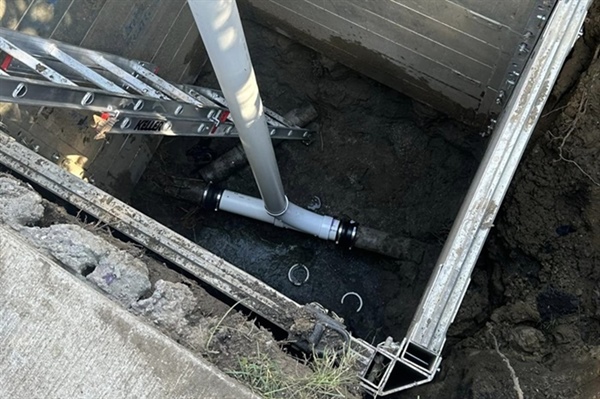How Upgraded Plumbing Systems Reduce Water Waste

Water conservation is a growing priority for homeowners and businesses, and modern plumbing upgrades can help reduce unnecessary water waste.
Advanced plumbing solutions significantly impact water efficiency, whether through smart leak detection, low-flow fixtures, or eco-friendly materials. As municipalities implement stricter regulations and water costs rise, upgrading plumbing systems becomes essential for long-term sustainability.
There are several ways to minimize water waste, from cutting-edge leak detection technology to seasonal maintenance strategies. This article explores key advancements, including plumbing innovations that help prevent leaks, reduce consumption, and promote sustainable practices.
Property owners can take proactive steps to optimize water efficiency by understanding these solutions.
New Technology for Identifying & Preventing Leaks
Innovative leak detection technology has revolutionized how homeowners and businesses identify and prevent water loss:
- Smart water monitors, such as flow sensors and pressure detectors, provide real-time data on usage patterns, alerting users to anomalies that indicate leaks. These devices integrate with mobile applications, allowing instant notifications and remote monitoring to minimize wasted water.
- Advanced systems, such as acoustic leak detection, use sensitive microphones to identify underground pipe leaks before they become major problems.
- Additionally, automatic shut-off valves can stop water flow when irregularities are detected, preventing extensive damage and reducing water waste.
By incorporating smart plumbing technology, property owners can proactively manage water consumption and address inefficiencies before they escalate into costly repairs.
Impact of Low-Flow Plumbing on Water Bills
Low-flow plumbing fixtures, including faucets, toilets, and showerheads, significantly reduce water usage without sacrificing performance.
Traditional toilets use up to 6 gallons per flush, whereas modern high-efficiency models operate with just 1.28 gallons. Similarly, low-flow showerheads restrict water flow to 1.5 gallons per minute, cutting usage nearly in half.
Low-flow plumbing has a substantial financial impact. Households can save thousands of gallons annually, which translates to lower utility bills and reduced strain on municipal water supplies.
Some cities in Minnesota offer rebates for installing WaterSense-certified fixtures, further incentivizing homeowners to switch.
Implementing low-flow solutions benefits individual households and the broader community by conserving essential water resources and reducing unnecessary waste.
Eco-Friendly Plumbing Materials & Their Benefits
Traditional plumbing materials, such as PVC and lead-based pipes, pose environmental and health risks. Upgrading to eco-friendly alternatives, such as PEX, stainless steel, and recycled copper, enhances durability while minimizing environmental impact.
PEX piping, for example, is highly flexible, resistant to corrosion, and requires fewer fittings, reducing potential leak points.
Another sustainable option is reclaimed water systems, which repurpose wastewater for irrigation and other non-potable uses. Greywater recycling allows homeowners to reuse sink and shower water for landscaping, decreasing the overall demand for freshwater supplies.
Property owners can contribute to water conservation efforts by choosing environmentally responsible materials while ensuring a safer, more sustainable plumbing system.
Maintaining Long-Term Water Efficiency in Homes
Consistent maintenance is key to sustaining water-efficient plumbing. Regularly inspecting pipes, checking for leaks, and servicing appliances like water heaters ensure systems remain optimized. Flushing sediment buildup in water heaters, for instance, improves efficiency and prevents excessive water waste.
Homeowners should also monitor water pressure, as excessive force can damage pipes and increase leakage risks. Installing pressure regulators keeps systems balanced, preventing unnecessary stress on plumbing infrastructure.
By prioritizing routine inspections and minor repairs, homeowners can extend the lifespan of their plumbing systems while conserving valuable resources.
Seasonal Maintenance Strategies to Prevent Water Waste
Seasonal plumbing maintenance is vital in preventing costly leaks and water loss. In winter, insulating exposed pipes reduces the risk of freezing and bursting, which can result in significant water waste. In summer, checking irrigation systems for leaks ensures efficient outdoor water use.
Spring and fall are ideal times to inspect sump pumps, clean gutters, and test water pressure regulators. Addressing minor issues before they escalate helps maintain peak efficiency and prevents unnecessary strain on plumbing systems.
Aligning maintenance tasks with seasonal changes, homeowners can proactively manage water usage and avoid costly emergency repairs.
How Modern Plumbing & Heating Can Help Optimize Water Efficiency
Upgrading to water-efficient plumbing requires expertise and quality installation. Modern Plumbing & Heating specializes in implementing cutting-edge solutions to help homeowners and businesses reduce water waste while maintaining optimal performance.
From installing smart leak detection systems to retrofitting low-flow fixtures, our team ensures maximum efficiency and sustainability.
With a deep understanding of eco-friendly materials and water conservation strategies, Modern Plumbing & Heating provides tailored solutions for each property's unique needs. Our expertise in seasonal maintenance, leak prevention, and long-term efficiency planning ensures that customers benefit from reduced water bills and enhanced system longevity.
If you're looking to upgrade your plumbing system for better efficiency, contact Modern Plumbing & Heating today. Our experienced professionals are ready to assist with installations, maintenance, and water-saving strategies. Give our office a call at 763-639-1632 to schedule a consultation.